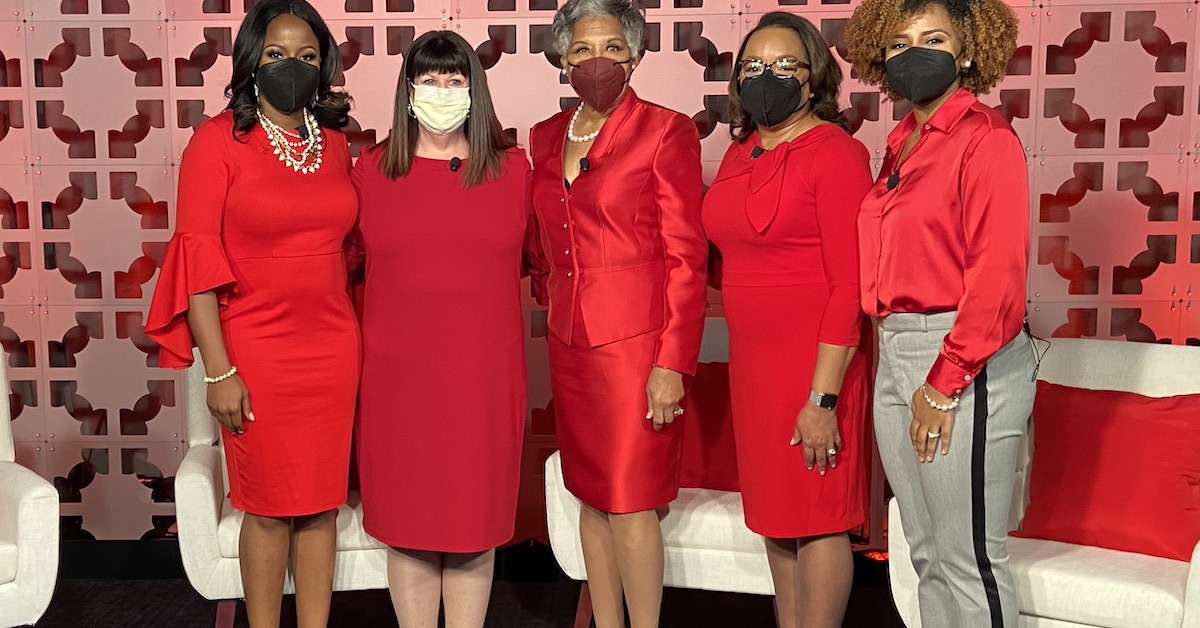Cardinal Health MarketSM
The legacy Cardinal.com Medical Ordering site has been replaced with Cardinal Health MarketSM, a new product experience designed with you in mind.

By Ola Snow, Chief Human Resources Officer
United by the goal of ending heart disease and stroke in women, thousands of people gathered virtually in Central Ohio last week for this year’s American Heart Association Go Red for Women. The event culminated a year-long campaign that I had the honor of co-chairing with U.S. Rep. Joyce Beatty. For the past 12 months, we’ve worked with an amazing, diverse group of volunteers from across the region to raise awareness about risks to women’s heart health and to raise funds for further research and education.
For so many women, the past couple of years have been especially challenging and stressful. Two years into the COVID-19 pandemic, women are still struggling to keep their families healthy, supporting their children’s schooling and working long hours. Finding work-life balance can seem impossible, and, unfortunately, many women simply don’t have the bandwidth to make their health a priority. As a result, researchers tell us that women’s heart health is likely to be negatively impacted for years to come.
Even before the pandemic, cardiovascular disease was our number one killer – taking one in three women every year. And yet, the most recent research shows that fewer women than ever know that cardiovascular disease is our biggest health threat. That lack of awareness is particularly prevalent among millennial and Generation Z women and women of color, who disproportionately suffer from heart disease.
Here are just a few facts from recent research: heart attacks are on the rise in younger women. Only one in five African American and Black women believe they are at risk, yet cardiovascular diseases cause nearly 50,000 deaths a year among African American and Black women. And only about one-third of Hispanic women are aware of the threat that heart diseases pose to their health, yet Hispanic women are likely to develop heart disease 10 years earlier than non-Hispanic women.
The good news, according to the American Heart Association, is that 80% of cardiac and stroke events among all women, regardless of age or race, are preventable. That’s why the ongoing work of the American Heart Association is so important – because it helps educate women so they know what steps they can take to improve their heart health.
My Go Red co-chair, Rep. Beatty, who suffered a significant stroke several years ago, has long been an advocate for heart health and equitable health outcomes. “Every person deserves the opportunity for a full, healthy life,” she said. “I’m proud to support the AHA and its initiatives to advance cardiovascular health for all, including its commitment to improving access to quality health care and a recent $20 million investment in the Health Equity Research Network on Prevention of Hypertension to better understand why hypertension is particularly acute in communities of color. The AHA also created a digital platform to help health care professionals identify and remove barriers to care due to racism, adverse social determinants of health and social needs of patients.”
As the AHA says, losing even one life to heart disease is one life too many. But each of us can see real results from adopting a more heart-healthy lifestyle. In fact, a recent study showed that we can add 14 years to our life expectancy with modest changes like making healthier food choices, practicing simple ways to manage stress, exercising several times a week, and knowing the numbers that impact the potential for cardiovascular risk, including good and bad cholesterol, blood pressure and body mass index. (You can learn more about what you can do to protect your heart here.)
Like the American Heart Association, Cardinal Health is deeply committed to working for equitable access to quality health care. That’s why we have proudly supported the Go Red for Women movement since its inception in 2004.
I want to thank all of the Cardinal Health leaders, and all of this year’s volunteers, for their support of the 2022 Go Red for Women campaign. Together, we will continue to work to identify and remove barriers so that everyone has the opportunity for a full and healthy life.
Ola Snow is Cardinal Health’s Chief Human Resources Officer. She has a passion for diversity, equity and inclusion and serves as co-executive sponsor for the D&I Council and an advisor to the Black and African American Racial Equity Cabinet, internal groups charged with challenging the status quo and helping to advance our DEI work. Snow also serves on the board of the Cardinal Health Foundation, Baxter Credit Union and Flying Horse Farms and is a commissioner on the Columbus Women’s Commission. She is an active member of The Ohio State University’s Women and Philanthropy and the Go Red for Women Circle of Red.